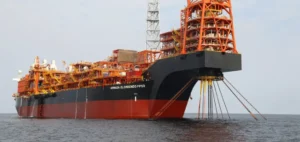Naftogaz, the Ukrainian state-owned gas company, has entered into negotiations with the State Oil Company of Azerbaijan Republic (Socar) to establish a gas transit and storage agreement in Ukraine.
This initiative is part of Naftogaz’s strategy to diversify its sources of supply and reduce its dependence on Gazprom, the Russian company with which the current transit contract expires at the end of 2024.
Oleksiy Chernyshov, CEO of Naftogaz, recently confirmed that Ukraine has no intention of renewing this contract due to the war situation.
At present, Ukraine’s gas transit system remains operational and unaffected by attacks, paving the way for viable alternatives.
Conditions and Scenarios
Naftogaz is considering two scenarios: either a total halt to Russian gas flows, or the establishment of partnerships with alternative suppliers to maintain supply volumes to the Russian market.
Naftogaz’s precondition is that Socar agrees to store gas in Ukrainian facilities.
Ukrainian storage capacity, the largest in Europe at 31 billion cubic meters (Bcm), offers a strategic opportunity.
Less than half of this capacity is used for domestic needs, with the remainder available for leasing and revenue-generating operations.
Transit challenges and opportunities
The transit of Azeri gas via Ukraine requires passage through Russia, a complex reality that Chernyshov acknowledges.
However, he emphasizes the advantages of cooperation with Socar, a major gas producer seeking to penetrate the European market.
This collaboration could reassure European markets about security of supply, especially during the winter months.
Ukrainian storage capacity could become more attractive as European storage sites fill up, already reaching over 86% of capacity according to Gas Infrastructure Europe.
This saturation of European capacity could redirect volumes to Ukraine, despite the risks associated with recent attacks on storage infrastructures.
Impact on the European Gas Market
Uncertainties over Ukrainian transit have already influenced gas prices in Europe.
Delivery contracts for January and February 2025 are currently the most expensive, with prices estimated at €40.60/MWh for January 2025, compared with €35.90/MWh for immediate delivery.
Production outlook and operational challenges
Chernyshov also discussed the prospects for gas production by Naftogaz subsidiaries.
Naftogaz’s upstream companies, UkrGazVydobuvannya and UkrNafta, produced 8.6 Bcm of gas in the first seven months of 2024, up 7% year-on-year.
Total production for 2024 is estimated at just under 15 Bcm, with an additional contribution of 3 Bcm from private companies.
Russian attacks on Naftogaz production sites pose a major challenge to business continuity.
These attacks directly affect production processes and require continuous adaptation of the company’s operational strategies.
Naftogaz hopes that the cooperation with Socar will help to secure part of the supply and strengthen Ukraine’s position as a key energy corridor for Europe, despite the continuing geopolitical tensions.




















